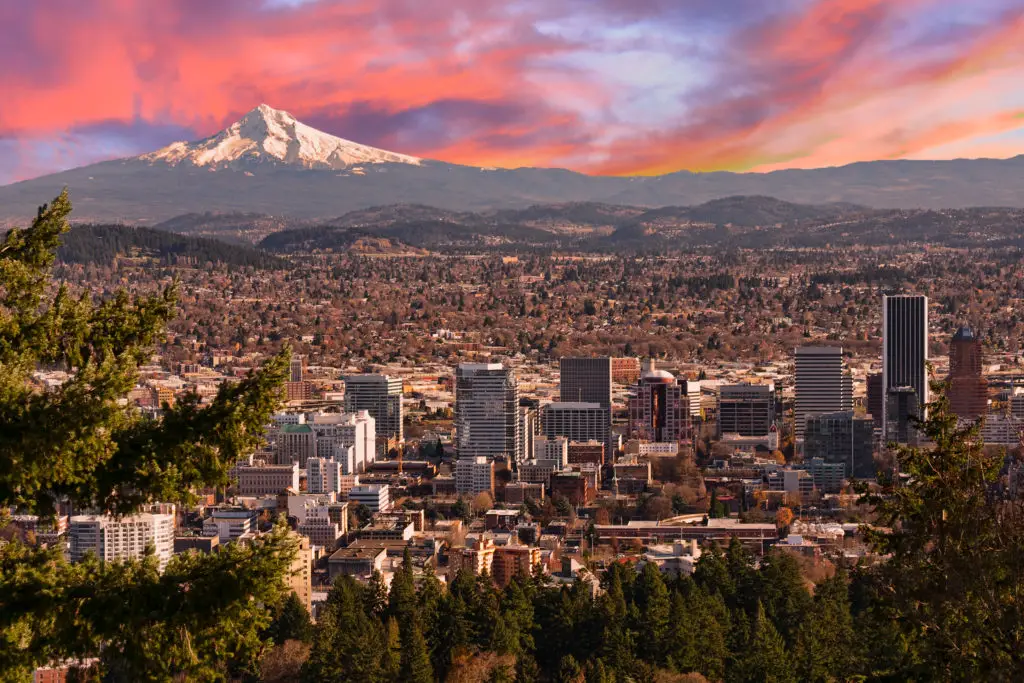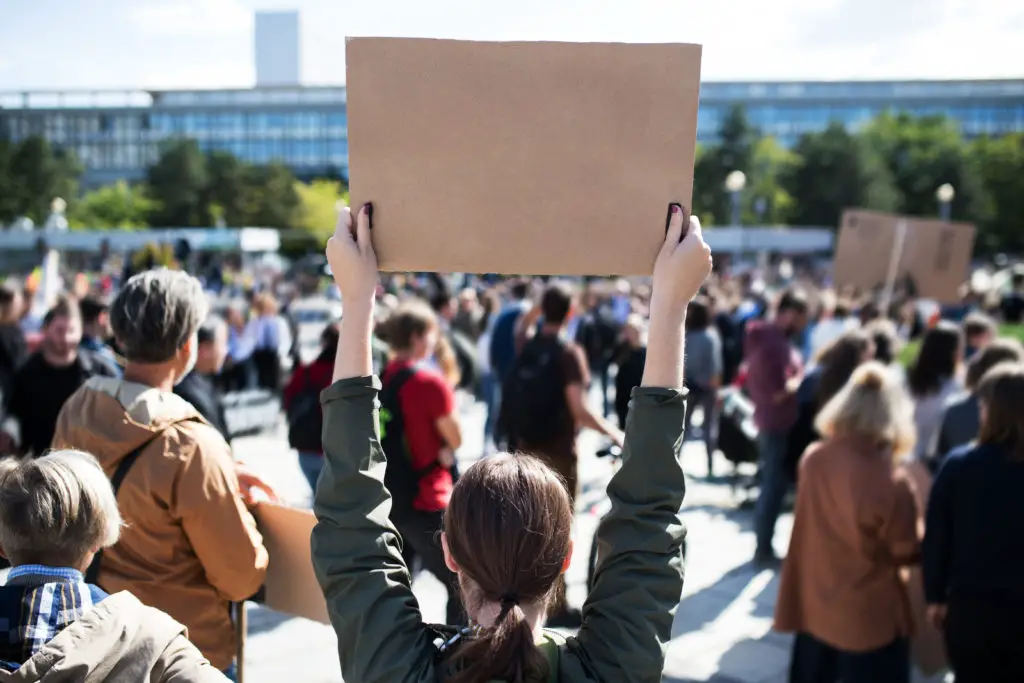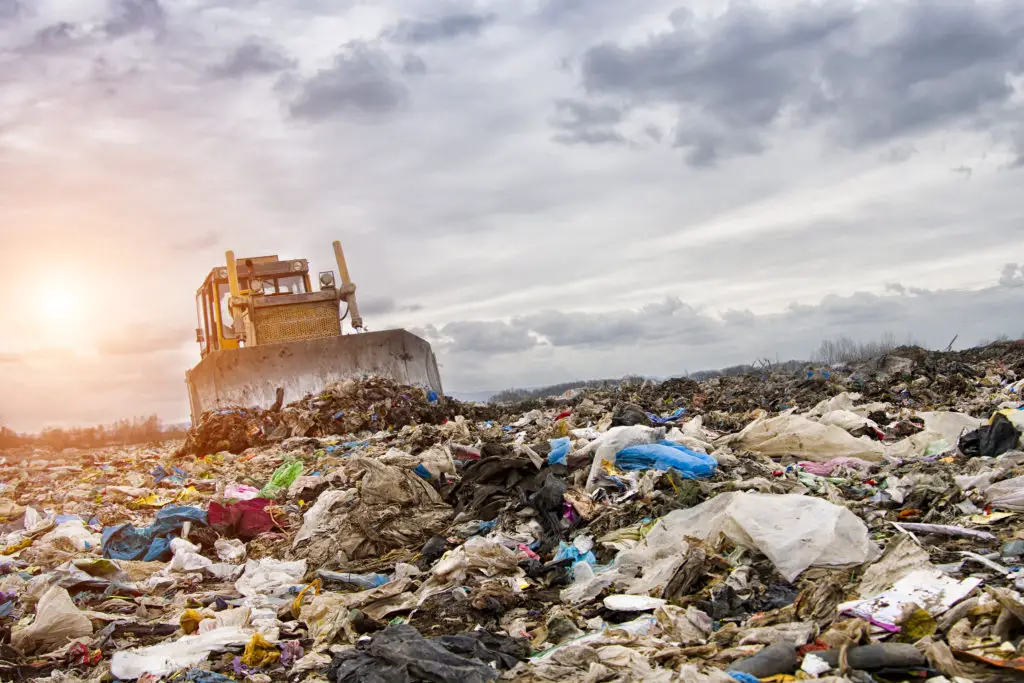
Portland is the largest city in Oregon and it’s a major destination for travelers. But even the beautiful forests and large shopping districts can’t disguise the fact that there are some major drawbacks to this city as well.
I’m very familiar with Portland and have spent quite a bit of time in this area. Speaking from experience, there are some things that everyone should know before you decide to take a trip here, let alone put down roots! These issues range from mild inconveniences to major statewide problems, but all of them can put a damper on life in Portland.
1. Tourist Attractions
As I mentioned above, Portland is a popular travel spot. Tourists like to visit big cities, and there are a variety of shops, attractions, and museums that are catered toward visitors.
While this isn’t a bad thing by itself, it can sometimes cause problems for the locals. For instance, tourists can crowd them out during some seasons of the year and make it harder to access certain buildings and attractions.
There’s also the issue of parking and driving with all these new cars on the road. Locals might want to avoid certain parts of town in order to avoid the hassle of dealing with tourists.
2. Gloomy Weather
If you’re at all familiar with Oregon, this point shouldn’t come as a surprise. The Pacific Northwest is famous for its grey and rainy weather and Portland is no exception to the rule.
About 3 out of every 5 days will be cloudy and Portland is well under the national average for sunny days per year. Some people might enjoy the rainy weather, but the lack of sunshine can get depressing and even unhealthy for others.
Make sure you pack an umbrella and plenty of dry socks if you plan on coming to Portland!
3. Spiders

This point may be more of a personal issue than a general one, but Portland has a LOT of spiders. I can’t stand these little creatures and there is a wide variety that comes in all shapes and sizes. They often get indoors as well, so it’s hard to feel fully safe from them no matter where you are.
Many of these spiders are harmless to humans (although I still wouldn’t want any of them to get within 50 feet of me). However, there are a couple of truly dangerous species, such as the Hobo spider.
They are commonly found in Oregon and their bites can cause extreme pain and even cause your flesh to rot. No thanks! Luckily they aren’t very aggressive and won’t usually attack humans without reason. But their very presence makes me nervous enough to include them on this list!
4. Limited Parking
Portland is a popular town and a lot of people will be traveling in and out of it for work, entertainment, or other visits. This high traffic volume leads to other problems, including parking shortages.
Any large city has to deal with the issue of parking. There are too many people and not enough space. Parking garages, meters just can’t keep up with the volume, so you might end up driving quite a bit out of your way to finding a big enough space.
If you have trouble with parallel parking (like I do) this is an even bigger issue. Portland has several small, narrow streets that are hard to maneuver and park in, so you just have to cross your fingers and hope for the best.
5. Not as Diverse as You Might Think
Portland has a bit of a reputation as one of the most progressive cities in the U.S. This means that elections can be a bit one-sided here and there isn’t much of a balance between parties. This could be a pro or a con, depending on where you fall in the political spectrum.
However, Portland does have some discrepancies when it comes to its racial and ethnic composition. Despite its reputation as a diverse and progressive city, Portland still has a large white majority, and comparatively one of the smallest black populations.
Because it is a large city, there is still a greater number of minorities than in other states, but the ratio is quite unbalanced. So if you’re moving to Portland in order to live in a more diverse community, it might not be able to deliver as much as you expect.
6. Low Graduation Rate
Another issue that Portland faces is a lower than average high school graduation rate. In previous years it has been in the 60-70% range, which is well below the national average of 85%. This limits the career options of students and creates a school environment that isn’t geared toward success.
Recently Portland’s graduation rate has been steadily rising but problems are still happening due to the problems of COVID-19 setbacks and growing absentee statistics.
Students can definitely still graduate in Portland, but the numbers aren’t always on their side. Other states have much higher success rates, so Oregon has a bit of adjusting to do.
7. Heavy Traffic

As I mentioned above, Portland has some serious issues with space and parking. Traffic is also a major setback for this city because of the high number of commuters.
Don’t try to get anywhere in a rush because the major highways and streets are often heavily clogged with taxis, busses, and cars. Public transportation also has its setbacks of overcrowding and slow travel times.
Again, traffic is a common problem for most large cities in the U.S. and Portland is no exception. Plan some extra travel time in your day so you can get where you need to go on time.
8. Unsustainable Growth
Again, tying in with the point above, Portland wasn’t designed to host the population it currently has. More than 2 million people currently live in Portland, with more coming in all the time.
The housing developers, civil utilities, and city infrastructure aren’t equipped to cater to this many people and the growth rate can’t be sustained. Roads are already overcrowded and it’s difficult to find housing in the city itself.
Things are already beginning to become congested and difficult to maintain in the city, so it’s only a matter of time before things begin to break down under the strain of such a large population.
9. High Rent/Living Cost
It’s also quite expensive to live in Portland, so many residents prefer to look for housing in the suburbs and surrounding towns. But if you don’t own a car and can’t commute to work, sometimes living in the city is your only option.
The median rent for the U.S. is about $997 per month, but a one-bedroom apartment in Portland costs an average of $1,375. That’s quite a bit more money and it can be hard to make ends meet with that monthly drain on your resources.
It costs an additional $1,000 in living costs each month, and many people don’t make enough to cover these necessary expenses in Portland. Unfortunately, prices just keep rising as well, which makes it harder and harder to afford to live in this city.
10. Hotspot for Civil Unrest

Portland is a very progressive city that prides itself on political involvement and civil rights activism. They are often on the front lines of major protests, strikes, and other demonstrations.
These causes are often worthwhile and important, so this activism isn’t a bad thing at all. But if you’re a Portland resident, it can be hard to navigate the city when there’s a lot of civil unrest. Oftentimes streets will be closed off for protestors and public areas might be crowded.
Violent crime is not common in Portland, and it’s actually one of the safest large cities in the U.S. But sometimes protests can get out of hand and devolve into riots that can damage people and property. This is a risk that any Portland resident has to be willing to take.
11. Power Outage Risk
Due to the large population and overstrained infrastructure, power outages are common in the Portland area. If there’s an external problem, such as a storm then it can take even longer to return power.
A lot of people rely heavily on the power grid in urban areas, so life comes to a sudden standstill when there’s a power outage. It can cause major problems for food, healthcare, transportation, and the everyday comforts that we’ve come to rely on.
So if you’re considering making a move to Portland, think about buying a generator as well!
14. High Income Tax
According to a study done by wallethub.com  , Oregon came in with a 4.2% tax on personal income, which is the second highest in the nation. While they might have a low sales tax, this extra high income tax still makes them rank 28/50 in the states with the highest tax burden.
, Oregon came in with a 4.2% tax on personal income, which is the second highest in the nation. While they might have a low sales tax, this extra high income tax still makes them rank 28/50 in the states with the highest tax burden.
So if you’re already having a hard time affording a lifestyle in Portland, this extra pay cut isn’t going to help your situation. In previous years, Oregon had one of the overall highest tax burdens in the U.S.
Things have improved a bit over the years, but the rate is still high compared to other states.
13. Litter and Land Pollution

Portland has a major problem with litter and land pollution. Although it prides itself on being a “green” city that focuses on environmental awareness and activism, it has its own crisis to deal with.
Due to the large population and the increasing homelessness, trash and litter cover a lot of ground in Portland. Soil erosion and factory pollution have also seeped into the ground and toxic chemicals have begun to build up under the noses (and feet) of every Portland resident.
Buildups of cadmium and arsenic have been detected in the Portland soil, which is deadly to humans. Portland is working to regulate and fix problems with pollution, but it’s difficult for them to overcome this buildup of trash and chemicals.
14. High Flood Risk
With all the rain that Oregon gets, it only makes sense that floods and water damage are common in this area. Floods can happen inland or close to the ocean.
Some floods can even be deadly. Flash floods and structural collapse can cause massive damage and danger to people in the area. Deadly floods aren’t common, but the conditions still exist for them to occur.
There’s also a substantial risk for water damage to homes and other buildings. Mold, rot, erosion, and cracked foundations can all come as a result of flooding and water damage.
15. Landslides and Mass Wasting Hazards
Another effect of the wet weather conditions is a greater potential for landslides and mass wasting. If an area gets a lot of rain (like Portland does) the ground can become saturated with water and begin to slide and shift.
This can also cause damage to homes over time, so be very careful about buying property in this area! A house may seem solid one day, but over time the foundation can shift, walls can crack, and doors can buckle.
Landslides also create hazards on roadways and can cause damage to infrastructure. In January of 2021, a Portland landslide brought down several large trees and completely shut off a major roadway. This is part of the risk of living here!
16. Drug And Alcohol Abuse

Substance abuse has always been a problem in Oregon. Drugs are far less regulated in this state compared to others, and many suppliers are able to raise large crops of drugs in the rich and humid growing conditions.
In the past 20 years, the problem has only gotten worse. Portland citizens are at higher risk of overdoses, dependency, and misuse of drugs. Over 300 people die from drug overdoses every year in Portland.
In recent years, the rules around drug possession and use have gotten slacker, not tighter. It’s easier than ever to obtain drugs in this area, and there are no longer any punishments attached to the possession of any type of drug.
Substance abuse is a tough problem to solve and many people suffer from it in Portland. There’s a fairly drug-positive culture in the city as well, so it can be hard to address it as a serious issue.
17. Large Homeless Population
Finally, Portland has one of the largest homeless populations in the United States. It’s home to the largest shantytown in the Springwater Corridor with a total estimated population of 500+ people.
There are social programs in place, but they’re just aren’t enough resources to properly care for the massive homeless population. The expensive housing and limited space further complicate the issue.
Unsanitary conditions, drug abuse, and untreated mental illness are common among the homeless community and Portland doesn’t have a good plan to fix or address these problems.
Related Topics:
If you like the article above, here are some other similar articles you should check out!
9 Famous Celebrities Who Live in Portland, Oregon
11 Pros and Cons of Retiring in Portland
17 Reasons Not to Move to Portland, Oregon (Voted by the Locals)
